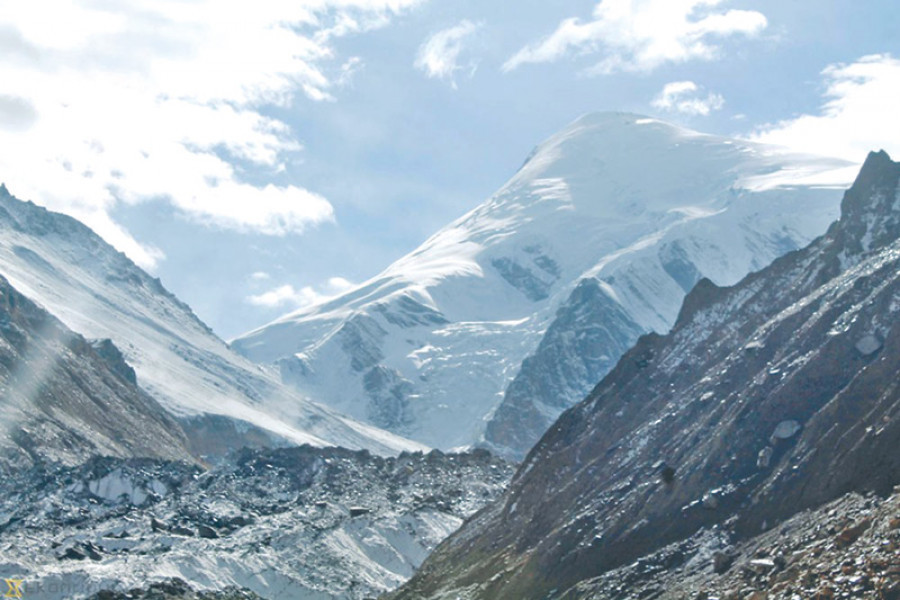Editorial
Doing our bit
Global negotiations aside, Nepal must prepare to deal with the effects of climate change.
The annual United Nations climate summit, COP29, where nations discuss the future of climate, wrapped up last Sunday in Baku, Azerbaijan. Even as nations fought hard to reach a fair deal, the conference ended with a new climate finance target or New Collective Quantified Goal (NCQG) of at least $300 billion a year by 2035. Some representatives stood from their seats and applauded; however, delegates from developing nations felt insulted and labelled the $300 billion a “paltry sum” as it is simply not enough to address their mounting climate concerns.
Even though the pledge has tripled from the previous target of $100 billion, which expires at the end of this year, it is less than the $400-$900 billion that many developing countries demanded from wealthy nations. The NCQG serves as a financial tool for justice, holding developed nations accountable for a climate crisis that disproportionately affects poorer countries. Yet, the escalating climate crisis each year has not been matched by a proportional increase in climate finance to address it. According to a 2024 OECD/IEA report, only $179 billion of the $1,265 billion tracked in global climate mitigation and adaptation finance from 2021-22 went to developing nations, with just $30 billion allocated to the least developed countries (LDCs).
Developing nations like ours need this fund to adapt to climate change as they progress. Climate change impacts are not equally distributed. Nepal is one of the most climate change-vulnerable countries globally, although it contributes a negligible 0.02 percent share of global carbon emissions. This means that the climate-induced disasters the nation is grappling with, like floods, droughts, heatwaves, glacial lake outburst floods (GLOF), and so on, are outcomes of global climate change, a crisis fueled mainly by the inaction of nations with substantial carbon footprints. This is the sad reality of several South Asian nations: By 2050, Bangladesh will lose 17 percent of its territory due to rising sea levels, around 90 percent of India lies in extreme heat danger zones, and Pakistan became the 5th most vulnerable country to climate change last year according to Global Climate Risk Index.
Considering our susceptibility to climate change, platforms like COP are vital to inform the world about our experiences and demand the compensation we deserve. Nepal’s COP-29 priorities this year focused on safeguarding its mountains, ensuring promised climate finance, enhancing access to climate funds, and urging the expedited implementation of the loss and damage fund established last year. Under the leadership of President Ramchandra Paudel, Nepal conducted a high-level session on climate change, during which he talked about the impacts of the melting of snow in the mountains. Nepal’s participation in the previous iterations of the UN climate summit hasn’t been that impressive. Negotiating and presenting on such platforms require experience, research and preparation. More than anything, it demands sensitivity towards climate change, which our leaders seemingly do not possess.
Besides setting an NCQG, this year’s COP also delivered global standards for carbon trading and mandated all 195 Paris signatories to announce more ambitious emission targets by February 2025. However, concerns over Donald Trump’s re-election as the US president overshadowed these developments at the summit. The US, even though it is the world’s second-largest emitter after China, withdrew from the Paris Agreement during Trump’s first term.
Although climate finance this year did not meet the expectations of developing nations, it cannot be rejected, especially with the rise of right-wing politicians who are indifferent to the climate crisis. Regardless, Nepal must strengthen its domestic climate change policies and enhance its negotiating and communication skills internationally. It should also collaborate with other developing nations that are experiencing the negative impacts of climate change. It is time we stopped ignoring the elephant in the room.




 13.12°C Kathmandu
13.12°C Kathmandu














